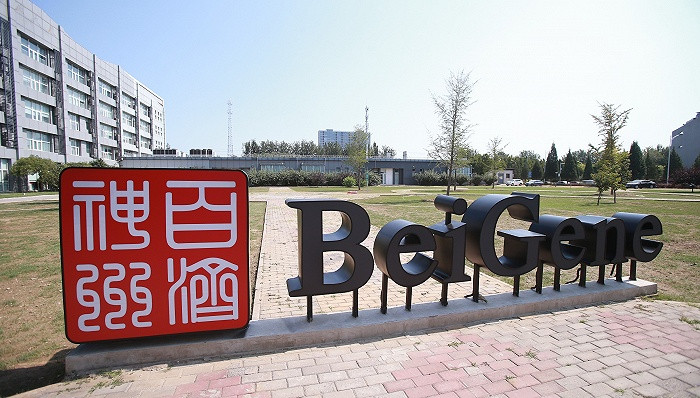Nasdaq- and Hong Kong-listed cancer drug developer BeiGene, Ltd., will issue yuan shares on Shanghai's STAR market.
The offering is expected in the first half of next year. It will be the world's first pharmaceutical firm to be listed on three stock exchanges.
Following the announcement, BeiGene shares decreased by 2.5%, closing at HK$164 ($21.16) per share Tuesday, and increased by 0.69% to close at $279.96 each share on Nasdaq.
The 10-year-old company was previously accused of inflating its sales and cumulatively lost $1.835 billion from 2016 through 2019.
Banking On R&D
The company recorded a net loss of $1.127 billion over the past three quarters, while the loss between July and September, alone, reached $426 million, according to BeiGene's recent financial report.
Its losses stem from the high cost of research and development work, said analysts, and the stock performance following the announcement reflects the market's lack of confidence in its upcoming public fundraising.
In comparison with BeiGene's 6.181 billion yuan ($939 million) R&D expenses during that period, Shanghai-listed Jiangsu Hengrui Medicine came in at about half that - spending 3.344 billion yuan on R&D.
BeiGene's loss in the third quarter even exceeds the combined losses of four domestic competitors - Shanghai Junshi Biosciences, Innovent Biologics, Akeso Inc. and Bio-Thera Solutions - over the first half of 2020.
BeiGene claims to have three internally developed late-stage assets, five marketed products in China and one product marketed in the U.S., according to its website.
The Shell Game
The biotech company was accused of inflating its sales numbers by almost 60%, which come from in-license Gelgene cancer drugs Revlimid, Abraxane and Vidaza in the China market, according to a report released by New York-based short-seller investment company J Capital Research in September 2019.
The report alleged BeiGene bought its own drugs and registered the costs to a shell company, BeiGene Pharmaceuticals Guangzhou (BPG), with a fake address and no operation. BeiGene set up BPG by acquiring local firm Huajian Pharmaceutical. BPG increased its registered capital three times in 2019, with each increase coming "just before the end of a quarter" to provide enough capital to purchase inventory, according to the investment firm.
Following the short-seller's report, BeiGene's market valuation dropped by over HK$8 billion at the time.
BeiGene chief financial officer and chief strategy officer Howard Liang responded that J Capital's sources couldn't possibly deliver "valid numbers" and the accusations were "without merit."
Liang also said BeiGene bought Huajian Pharmaceutical to fund development costs for future commercialization of BeiGene's PD-1 candidate Tislelizumab, because Huajian holds a drug distribution license, according to firecepharma.com.
A Larger Leap Of Faith
Listed on Nasdaq in 2016, BeiGene leap-frogged onto the commercial stage, particularly after the 2017 acquisition of Celgene's Chinese operations at a cost of $1.4 billion.
This July, BeiGene made a jumbo deal for a $2.1 billion direct offering of 145.8 million ordinary shares in stock placement - a 14.3% stake in the company. HillHouse Capital acted as the anchor investor, pouring in around $1 billion. Other buyers include California-based pharmaceutical giant Amgen and New York-based hedge fund Baker Bros Advisors.
The share sale came after BeiGene's blood cancer therapy, Zanubrutinib for mantle cell lymphoma, becoming the first China cancer drug granted accelerated approval by the U.S. Food and Drug Administration last November.
Liang said at that time the company had been continually catching up with mainland China's policy changes toward biotech firms listed on A-share and STAR markets while it keeps seeking capital possibilities in domestic market.





